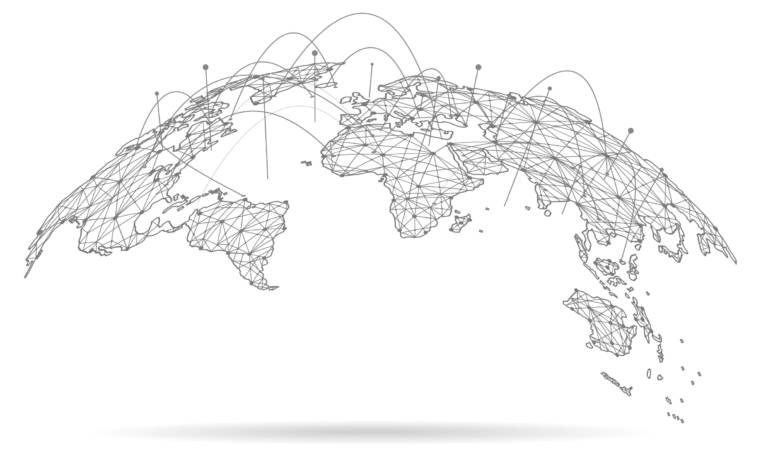Letters Rogatory Explained: Facilitating Legal Teamwork Between Countries

Definition of Letters Rogatory
Letters rogatory are official requests made by a court in one territory to a court in another jurisdiction, looking for support in obtaining proof or testimony for a legal case. This procedural device is necessary in the context of international law, where legal systems might vary, and cross-border participation is needed. Letters rogatory facilitate the gathering of information that might be critical for settling situations, specifically in instances entailing complicated transnational problems.
Usually, these requests emerge in civil, criminal, or management issues where a celebration needs evidence that is situated outside the jurisdiction of the asking for court. The letters function as a way to guarantee that the concepts of due process are promoted, enabling courts to access proof that may otherwise stay inaccessible because of geographic or lawful obstacles.
The usage of letters rogatory is controlled by global treaties, bilateral agreements, or residential laws, which define the treatments and commitments of the courts included. It is very important to keep in mind that the implementation of such demands is not guaranteed; they depend upon the legislations and practices of the jurisdiction receiving the letter. Hence, letters rogatory are a pivotal tool for fostering lawful collaboration and making sure justice across boundaries.
The Refine of Issuing Letters Rogatory
Issuing letters rogatory includes a structured process that ensures compliance with both residential and international lawful requirements. The requesting celebration, usually a court or legal authority, composes an official demand outlining the nature of the assistance looked for, the proof or information required, and the lawful basis for the demand. This record should be precise to facilitate understanding by the foreign jurisdiction.

The following action involves transmitting the letters rogatory to the assigned international authority. This is usually done with polite networks or global lawful assistance frameworks, making certain that the request is received and recognized by the international court. The international court after that processes the request according to its own lawful treatments, eventually reacting to the asking for event with the sought-after details or proof, therefore assisting in worldwide lawful participation.
Importance in International Law
The relevance of letters rogatory in global legislation can not be overemphasized, as they act as a vital system for judicial teamwork throughout boundaries. These official ask for help in legal issues enable courts in one jurisdiction to inquire, evidence, or the visibility of witnesses from another jurisdiction, thus facilitating the my blog administration of justice image source in multinational situations.
Letters rogatory are specifically crucial in the context of globalization, where lawful disagreements often extend numerous countries. They make it possible for the collection of proof that may or else be unattainable, guaranteeing that lawful proceedings are informed and reasonable. By promoting cooperation in between judicial systems, letters rogatory help copyright the guideline of legislation and advertise mutual respect amongst nations.
Furthermore, using letters rogatory demonstrates a commitment to international standards and principles of cooperation, reflecting the interconnected nature of contemporary legal methods. It shows the value of sticking to recognized treatments and treaties, such as the Hague Convention, which supplies a structure for these requests - Letters rogatory. Ultimately, letters rogatory boost the effectiveness of legal processes, making certain that justice is not hindered by geographical boundaries
Difficulties and Limitations
Despite their relevance, letters rogatory face numerous difficulties and limitations that can restrain their performance. One main problem is the differing lawful structures and treatments throughout territories, which can result in misunderstandings and delays in the implementation of requests. Various nations might have distinct demands for the credibility of letters rogatory, making complex the process additionally.
Furthermore, the commonly lengthy nature of international legal cooperation can impede timely access to proof or witnesses. This hold-up may negatively affect legal procedures or continuous investigations, particularly in cases requiring immediate action. Moreover, the absence of sources and training in some jurisdictions can lead to insufficient handling of requests, bring about poor or insufficient responses.
Cultural distinctions and differing mindsets in the direction of lawful procedures can additionally pose substantial obstacles. Nations with much less official legal systems may battle to conform with the procedural roughness anticipated in letters rogatory. Finally, political stress between countries can influence the determination to perform demands, causing a lack of participation and decreasing the energy of this system in global legislation. These obstacles require continuous dialogue and reform to boost the efficacy of letters rogatory in legal cooperation.
Study and Examples

Alternatively, difficulties can develop, as seen in a situation including a European country looking for proof in a recurring criminal matter from a non-EU country - Letters rogatory. The procedure was delayed due to bureaucratic obstacles and varying lawful standards, inevitably hindering the investigation
These examples show that while letters rogatory can help with global cooperation and accelerate legal process, they likewise highlight the need for clear interaction and understanding of legal structures between nations. Such situation research studies highlight the value of refining this tool to enhance performance and performance in worldwide lawful issues.
Verdict
In recap, letters rogatory act as an essential system for assisting in legal teamwork in between countries, guaranteeing the collection of proof and testimony throughout jurisdictions. Their relevance in worldwide regulation can not be overemphasized, as they promote due procedure and enhance the effectiveness of cross-border legal process. Nonetheless, difficulties such as differing legal frameworks and political stress might impede their performance. Continued efforts to improve the procedure and streamline are important for cultivating more powerful global judicial cooperation.
Letters rogatory are official demands made by a court in one territory to a court in another jurisdiction, seeking help in acquiring proof or testimony for a lawful proceeding. The asking for event, usually a court or lawful authority, composes an official request describing the nature of the help sought, the proof or information needed, and the legal basis for the demand. The international court after that processes the request according to its very own legal procedures, eventually reacting to the requesting party with the sought-after information or proof, thus facilitating international legal collaboration.
Furthermore, the usage of letters rogatory demonstrates a dedication to global standards and principles of cooperation, mirroring the interconnected nature of contemporary legal techniques.International legal collaboration with letters rogatory is not without its real-world effects, as shown by various case studies that highlight both difficulties and successes.